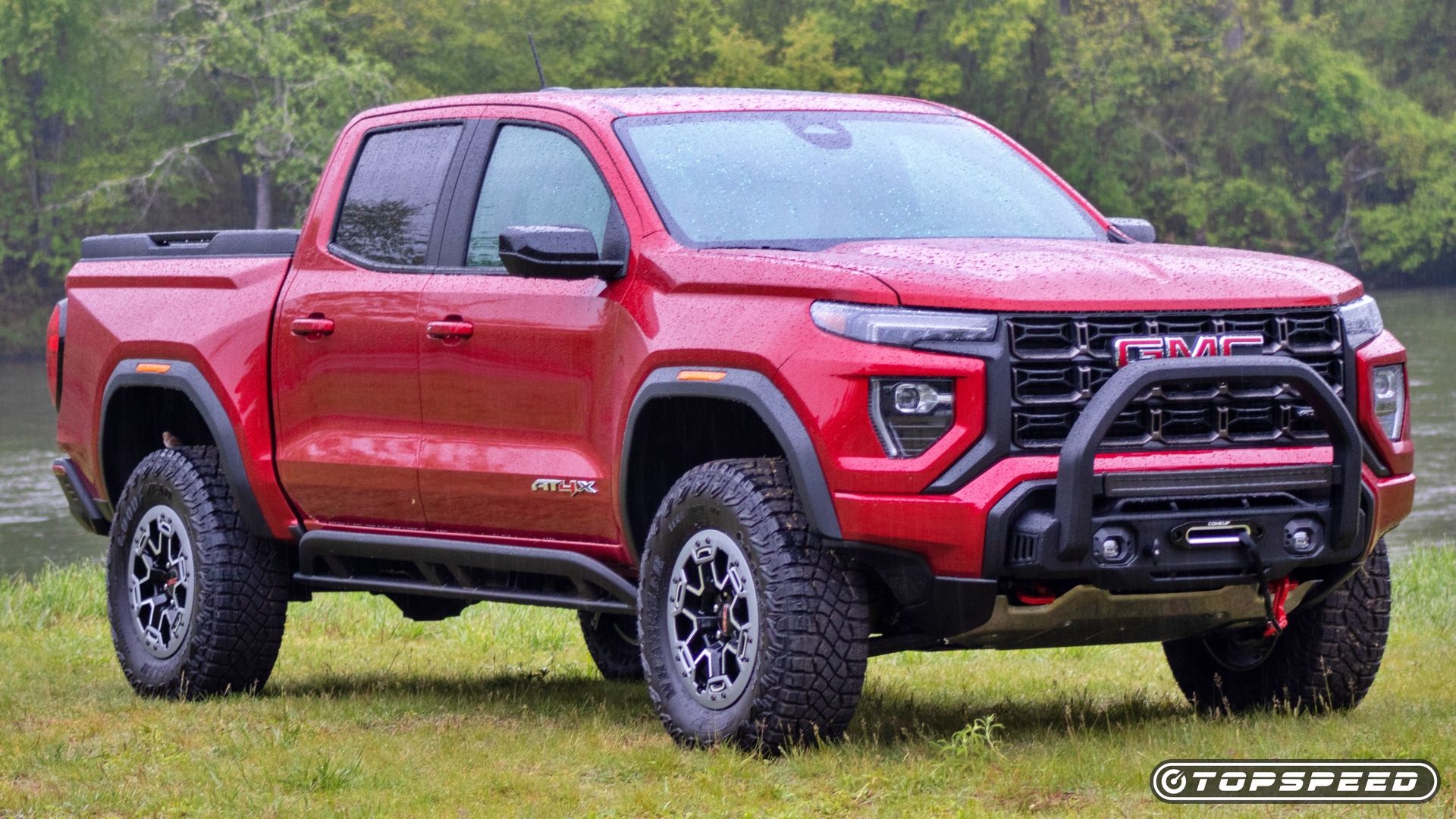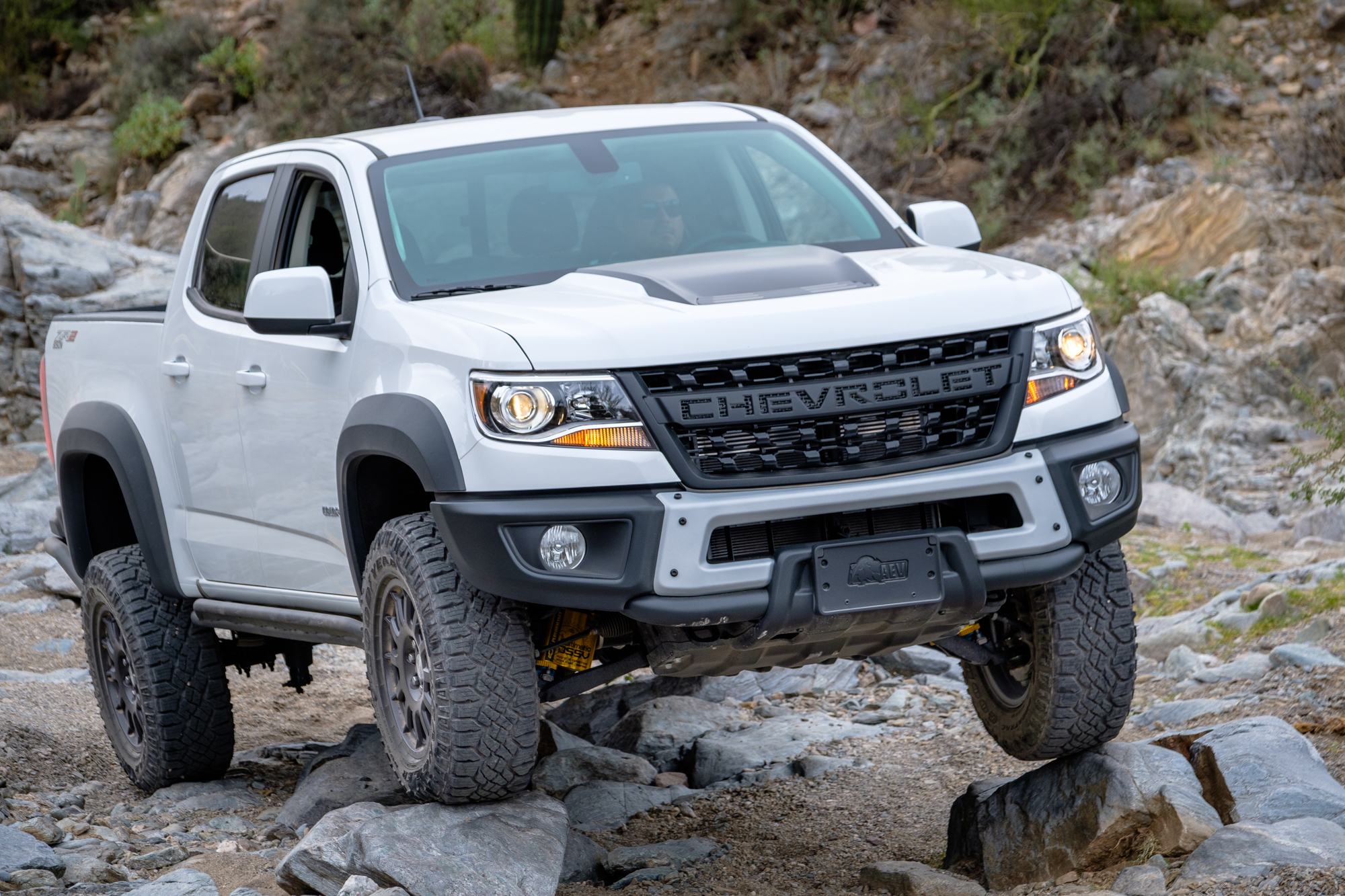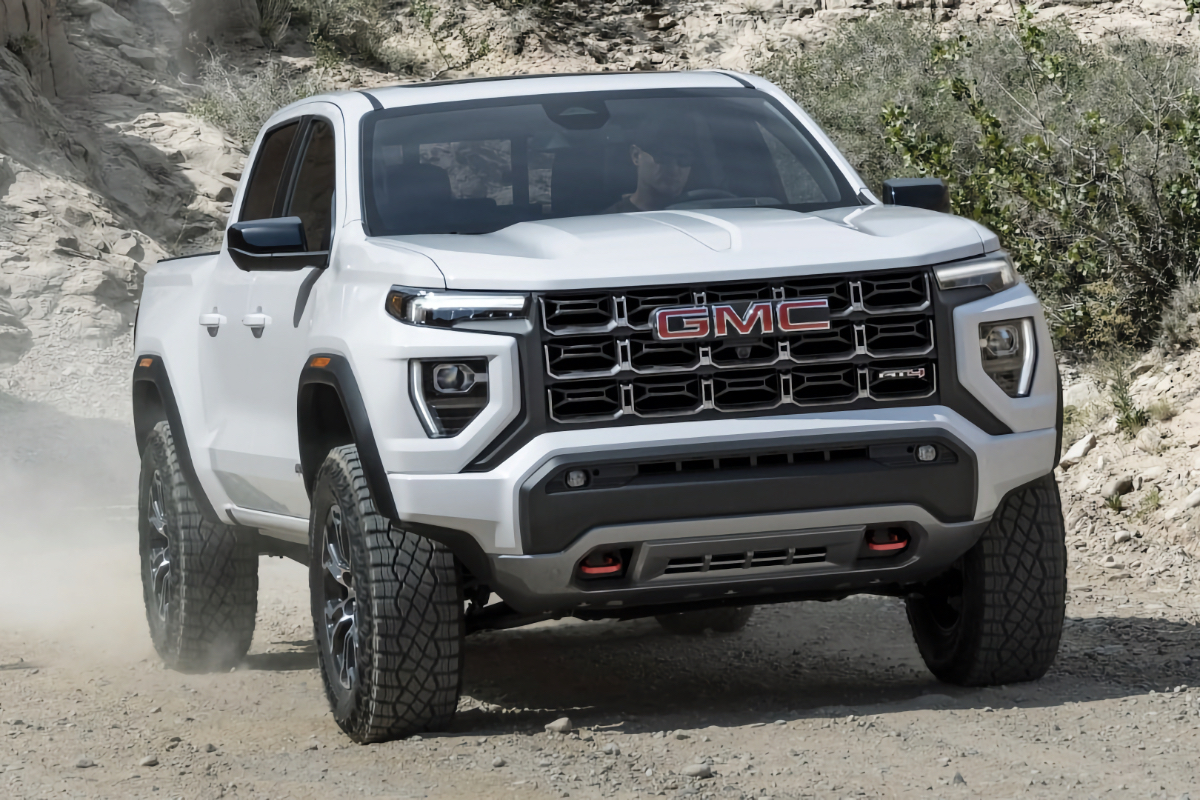Midsize Pickup Trucks: The Perfect Blend of Capability and Maneuverability pickup.truckstrend.com
In the vast landscape of automotive choices, few categories have experienced a resurgence quite like the midsize pickup truck. Once overshadowed by their full-size counterparts, these versatile vehicles have carved out a significant niche, offering a compelling blend of utility, maneuverability, and everyday practicality. For many, a midsize pickup represents the “just right” solution – big enough to handle serious tasks, yet small enough to navigate urban jungles and fit comfortably in a garage. This comprehensive guide will delve into the world of midsize pickup trucks, exploring their appeal, key considerations, leading models, and what makes them an increasingly popular choice for a diverse range of buyers.
The Evolution of the Midsize Pickup
Midsize Pickup Trucks: The Perfect Blend of Capability and Maneuverability
The concept of a smaller, more manageable truck is not new. In the 1970s and 80s, compact pickups like the Toyota Hilux (later Tacoma), Nissan Hardbody, and Ford Ranger were ubiquitous, prized for their affordability and fuel efficiency. However, as demand grew for more comfort, power, and interior space, these trucks began to expand. Over the decades, they shed the "compact" label, evolving into what we now know as midsize pickups.
Today’s midsize trucks are a far cry from their humble ancestors. They boast more powerful engines, sophisticated interiors, advanced safety features, and significantly increased towing and payload capacities. This evolution has positioned them as a viable alternative to full-size trucks for many buyers, bridging the gap between traditional workhorses and more passenger-oriented SUVs. Their growth reflects a broader trend: consumers seeking vehicles that can do a bit of everything without the sheer bulk or cost of a full-size model.
Why Choose a Midsize Pickup? The Undeniable Appeal
The allure of midsize pickup trucks stems from their unique combination of attributes, making them a compelling choice for a wide array of lifestyles and needs:
- Maneuverability and Daily Driving: Unlike their full-size brethren, midsize trucks are considerably easier to navigate through crowded city streets, park in tight spaces, and fit into standard residential garages. Their smaller footprint makes them less intimidating for daily commutes and errands, providing a more car-like driving experience without sacrificing the truck bed.
- Relative Fuel Efficiency: While no truck will rival a compact car in terms of MPG, midsize pickups generally offer better fuel economy than full-size models. This can translate into significant savings at the pump, especially for those who rack up a lot of miles or are conscious of their environmental footprint.
- Sufficient Capability: For the vast majority of recreational users and light-duty professionals, midsize trucks offer more than enough towing and payload capacity. Whether you’re hauling camping gear, ATVs, dirt bikes, or a small boat, a properly equipped midsize truck can often handle the job with ease, eliminating the need for a larger, more expensive vehicle.
- Versatility Personified: Midsize pickups truly shine in their versatility. They can be weekend adventure vehicles, daily commuters, light work trucks, or even family transporters. Their open bed allows for easy transport of dirty or oversized items that wouldn’t fit in an SUV, from gardening supplies to furniture. Many models also offer excellent off-road prowess, appealing to outdoor enthusiasts.
- More Approachable Affordability: Generally, midsize trucks come with a lower starting MSRP than full-size trucks, making them more accessible to a wider range of budgets. This cost advantage often extends to insurance, registration, and potentially even maintenance, contributing to lower overall ownership costs.
- Off-Road Prowess: Many midsize trucks, particularly models like the Toyota Tacoma TRD Pro, Chevrolet Colorado ZR2, and Jeep Gladiator Rubicon, are designed with serious off-roading in mind. Their relatively smaller size, coupled with advanced 4×4 systems, robust suspensions, and protective underbody armor, makes them highly capable on challenging trails.

Key Considerations When Buying a Midsize Pickup

Choosing the right midsize pickup requires careful thought about your specific needs and priorities. Here are the crucial factors to consider:
- Intended Use: This is paramount. Will it be a daily driver, a dedicated work truck, an off-road explorer, or a family vehicle? Your primary use will dictate cab style, bed length, and necessary features.
- Cab Configuration:
- Extended Cab (or King Cab/Double Cab): Offers limited rear seating, often best for occasional passengers or extra cargo space inside the cabin.
- Crew Cab (or Quad Cab): Provides full-size rear doors and ample legroom, making it suitable for regularly transporting adults or a family. This is the most popular configuration today.

- Bed Length:
- Short Bed (typically 5-6 feet): More common with crew cabs, easier to maneuver and park. Good for most recreational hauling.
- Long Bed (typically 6-7 feet): Offers more cargo capacity, ideal for longer items or those who frequently haul large loads. Often paired with extended cabs.
- Powertrain Options:
- Four-Cylinder (I4) Engines: Generally more fuel-efficient, suitable for lighter duty and daily driving.
- V6 Engines: Offer more power and torque, essential for serious towing and hauling.
- Diesel Engines: Available on some models (e.g., Chevrolet Colorado/GMC Canyon, previously Jeep Gladiator), providing excellent torque for towing and often better fuel economy, but with a higher upfront cost.
- Drivetrain:
- Two-Wheel Drive (2WD): Typically rear-wheel drive, suitable for paved roads and light-duty work, offering better fuel economy and a lower price.
- Four-Wheel Drive (4WD): Essential for off-roading, inclement weather, or towing on slippery surfaces. Most systems offer 2H, 4H, and 4L modes.
- Towing and Payload Capacity: Always check the manufacturer’s specifications. Ensure the truck’s maximum towing capacity exceeds the weight of your heaviest trailer, and its payload capacity can handle the weight of all passengers and cargo in the bed. Don’t forget to factor in the weight of the trailer itself (tongue weight) for payload.
- Features and Technology: Modern midsize trucks offer a host of features, from advanced infotainment systems with Apple CarPlay/Android Auto to sophisticated safety suites (adaptive cruise control, lane departure warning, blind-spot monitoring). Prioritize what’s important for your comfort, convenience, and safety.
- Trim Levels: Manufacturers offer various trim levels, from basic work trucks to luxurious cruisers and rugged off-road specialists. Higher trims often include more features, premium materials, and specialized equipment.
- Resale Value and Reliability: Historically, certain midsize trucks (like the Toyota Tacoma) have held their value exceptionally well and have a reputation for bulletproof reliability. Researching these aspects can save you money and headaches in the long run.
Leading Midsize Pickup Models
The midsize truck segment is competitive, with each model offering its unique selling propositions:
- Toyota Tacoma: Renowned for its legendary reliability, strong resale value, and exceptional off-road capabilities, especially in TRD Pro and TRD Off-Road trims. A perennial favorite.
- Ford Ranger: Ford’s re-entry into the segment brought a capable truck with a strong turbocharged engine and solid towing figures, appealing to those seeking a modern, robust option.
- Chevrolet Colorado / GMC Canyon: These twins offer a comfortable ride, a powerful V6 engine option, and the unique availability of a diesel engine for impressive torque and fuel economy. The ZR2 (Colorado) and AT4 (Canyon) trims are serious off-road contenders.
- Nissan Frontier: Recently redesigned, the Frontier offers a rugged aesthetic, a powerful standard V6 engine, and a focus on durability and value.
- Jeep Gladiator: Standing out with its unmistakable Jeep styling, removable doors and roof, and unparalleled off-road prowess, the Gladiator is in a class of its own for adventure seekers.
- Honda Ridgeline: Unique in the segment as a unibody (car-based) truck, the Ridgeline offers a smoother, more comfortable ride, excellent interior space, and innovative features like a dual-action tailgate and an in-bed trunk. It’s ideal for those who prioritize comfort and light utility over heavy-duty capability.
Tips for Owning and Maintaining a Midsize Pickup
To maximize the lifespan and utility of your midsize truck, consider these practical tips:
- Adhere to Maintenance Schedules: Regular oil changes, tire rotations, fluid checks, and filter replacements are crucial for optimal performance and longevity.
- Understand Load Limits: Never exceed your truck’s Gross Vehicle Weight Rating (GVWR) or Gross Combined Weight Rating (GCWR). Overloading can damage components and compromise safety.
- Proper Tie-Down Techniques: Invest in quality tie-downs and understand how to properly secure cargo in the bed to prevent shifting during transit.
- Consider Accessories: Bed liners protect the bed, tonneau covers secure cargo from the elements and theft, and aftermarket racks can expand carrying capacity for bikes, kayaks, or ladders.
- Off-Road Awareness: If you venture off-road, learn proper techniques, understand your vehicle’s capabilities, and never go alone.
Challenges and Solutions
While midsize trucks offer many advantages, they aren’t without potential drawbacks:
- Fuel Economy: Though better than full-size trucks, they still consume more fuel than sedans or many SUVs.
- Solution: Opt for a 4-cylinder or diesel engine, drive conservatively, and perform regular maintenance.
- Ride Comfort: Some body-on-frame trucks can have a stiffer, "truck-like" ride, especially when unloaded.
- Solution: Test drive thoroughly, consider models known for better ride quality (e.g., Ridgeline), or look into aftermarket suspension upgrades.
- Interior Space: While crew cabs offer decent rear seating, they are still generally tighter than large SUVs or full-size trucks.
- Solution: Evaluate your passenger needs carefully. If regularly transporting multiple adults, a full-size truck or large SUV might be more suitable.
- Pricing Creep: Newer, more feature-rich midsize trucks are becoming increasingly expensive, blurring the line with full-size truck pricing.
- Solution: Stick to lower or mid-tier trims, consider certified pre-owned options, or prioritize features based on true necessity rather than desire.
Midsize Pickup Trucks: Price and Key Specifications
Please note that prices are approximate starting MSRPs for base models and can vary significantly based on trim level, options, and location. Towing and payload capacities are maximums for properly equipped configurations.
| Model | Starting MSRP (Approx.) | Max Towing (lbs) | Max Payload (lbs) | Standard Engine Options | Key Feature / Niche |
|---|---|---|---|---|---|
| Toyota Tacoma | $28,000 – $32,000+ | 6,800 | 1,685 | 2.7L I4, 3.5L V6 | Legendary reliability, off-road prowess, high resale |
| Ford Ranger | $29,000 – $34,000+ | 7,500 | 1,905 | 2.3L EcoBoost I4 | Strong turbocharged engine, high towing capacity |
| Chevy Colorado | $29,000 – $34,000+ | 7,700 | 1,590 | 2.7L Turbo I4, 3.6L V6 (previous gen), 2.8L Duramax Diesel (previous gen) | Versatile engine options, ZR2 off-road trim |
| GMC Canyon | $30,000 – $35,000+ | 7,700 | 1,640 | 2.7L Turbo I4, 3.6L V6 (previous gen), 2.8L Duramax Diesel (previous gen) | Premium design, AT4 off-road trim |
| Nissan Frontier | $29,000 – $33,000+ | 6,720 | 1,610 | 3.8L V6 | Robust standard V6, rugged styling, good value |
| Jeep Gladiator | $41,000 – $46,000+ | 7,700 | 1,725 | 3.6L V6, 3.0L EcoDiesel V6 (previous gen) | Unmatched off-road capability, open-air driving |
| Honda Ridgeline | $40,000 – $45,000+ | 5,000 | 1,580 | 3.5L V6 | Unibody comfort, in-bed trunk, smooth ride |
Frequently Asked Questions (FAQ)
Q1: What’s the main difference between midsize and full-size trucks?
A1: Midsize trucks are generally smaller in footprint, offer better maneuverability, and are more fuel-efficient than full-size trucks. While they have lower maximum towing and payload capacities, they are often sufficient for most recreational and light-duty work needs. Full-size trucks excel in sheer power, maximum capability, and interior space.
Q2: Are midsize trucks good for daily driving?
A2: Yes, absolutely. Their more manageable size makes them much easier to park and navigate in urban environments compared to full-size trucks. Many modern midsize trucks also offer comfortable interiors and car-like features, making them pleasant for daily commutes.
Q3: Can midsize trucks really tow heavy loads?
A3: Modern midsize trucks are quite capable. Most can tow between 5,000 to 7,700 pounds when properly equipped, which is more than enough for most utility trailers, small boats, ATVs, or camping trailers. Always check the specific model’s maximum towing capacity.
Q4: What’s the best midsize truck for off-roading?
A4: The "best" depends on the type of off-roading. For extreme rock crawling and open-air adventure, the Jeep Gladiator Rubicon is hard to beat. For general trail use and desert running, the Toyota Tacoma TRD Pro and Chevrolet Colorado ZR2 are top contenders due to their specialized suspensions and features.
Q5: Is a midsize truck more fuel-efficient than a full-size?
A5: Generally, yes. While individual mileage varies by engine, drivetrain, and driving habits, midsize trucks typically offer better fuel economy than their larger counterparts due to their lighter weight and smaller engines. However, they are still trucks and won’t match the MPG of smaller cars or crossovers.
Conclusion
Midsize pickup trucks have firmly re-established their place in the automotive market, offering a compelling proposition for those who need truck capabilities without the bulk, cost, or fuel consumption of a full-size model. Their evolution has transformed them from utilitarian workhorses into versatile, comfortable, and increasingly sophisticated vehicles capable of handling everything from daily commutes to rugged off-road adventures. By carefully considering your needs, researching available models, and understanding their unique attributes, you can find the perfect midsize pickup truck – a vehicle that truly is "just right" for the modern world.


